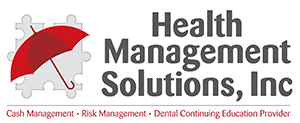Glossary
Credentialing: The process by which an individual or organization’s qualifications, experience, and abilities are verified and formally recognized, often pertaining to healthcare professionals seeking privileges to provide services within medical institutions.
OSHA: The Occupational Safety and Health Administration, a US government agency responsible for ensuring safe and healthy working conditions for employees by setting and enforcing standards and regulations.
HIPAA: The Health Insurance Portability and Accountability Act, a US legislation that provides data privacy and security provisions to safeguard medical information.
Insurance Verification: The process of confirming that a patient has valid health insurance coverage and determining the specifics of what their insurance plan covers.
Dental Billing: The process of submitting and following up on claims to dental insurance companies to receive payment for services rendered by a dental office.
Medical Billing: The process of submitting and following up on claims to health insurance companies to secure payment for medical services provided by healthcare professionals
Insurance Collections: The activity of pursuing payments from insurance companies when claims are delayed, underpaid, or denied.
Biomedical Waste: Any waste containing infectious or potentially infectious materials, often originating from healthcare facilities, research institutions, and laboratories. This can include items like used needles, bandages, and body tissues.
Dental Continuing Education: Ongoing educational activities designed to help dental professionals maintain competence, acquire new knowledge and skills, and meet licensing and certification requirements.
Risk Management: The identification, assessment, and prioritization of risks followed by coordinated efforts to minimize, monitor, and control the probability or impact of unforeseen events.
Compliance: Adhering to established guidelines, specifications, or legislation set by a governing body or authority.
Board of Dentistry Regulations: Rules and standards set by a governing board specific to the practice of dentistry, ensuring the safety, ethics, and quality of care provided to the public.
Center for Disease Control Recommendations: Guidelines and advisories provided by the Center for Disease Control and Prevention (CDC), a national public health agency, to prevent and control the spread of diseases.
Back Office Support Services: Administrative and support services that work behind the scenes to ensure the smooth operation of a business. This can include functions like accounting, human resources, and IT services.
Fee Schedule Negotiations: The process of discussing and agreeing upon a standardized list of service fees between healthcare providers and insurance companies or other entities.
